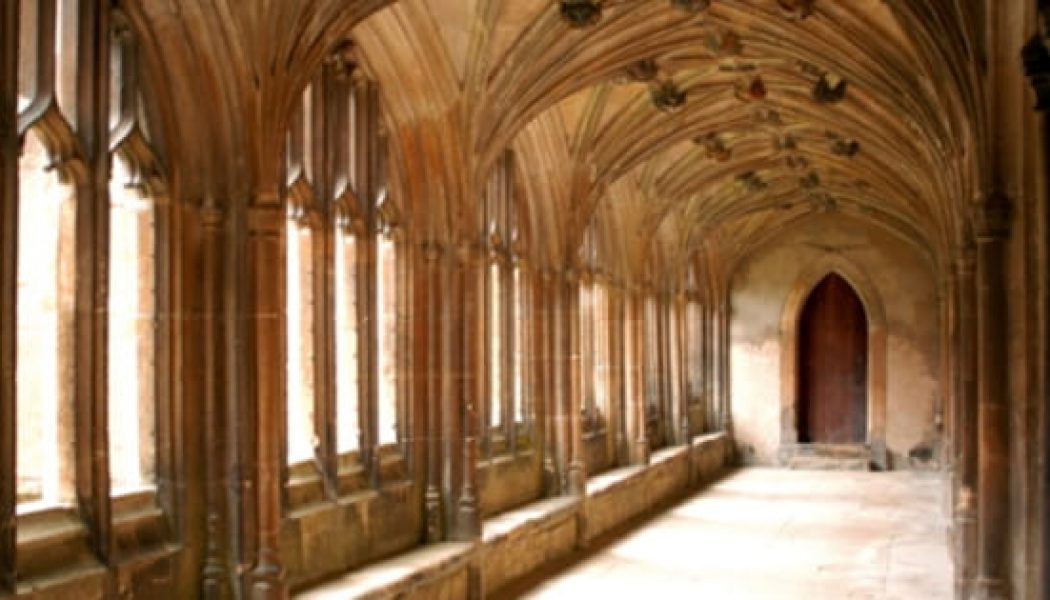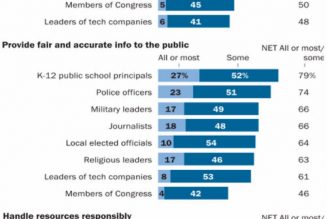
“I always thought of Dumbledore as gay,” said author J. K. Rowling about Albus Dumbledore, one of the good guys in all seven of her harry potter novels.
Unlike the way he is portrayed in the movies, Dumbledore is neither bumbling nor weak. He is commanding, authoritative, strong, sure, and only defeated by superior forces, never inferior ones. Dumbledore didn’t die because he made mistakes or because he absentmindedly mismanaged some magic. He died because he laid down his life, playing his appointed part in the outworking of a grand providential plan into which he had remarkable insight.
How do we deal with the information that Rowling has given us? How do we respond to her declaration that she thought of him as gay?
This calls for wisdom.
We should ask, I think, at least two questions: (1) what does Rowling show us of Dumbledore’s conduct as it relates to homosexuality/same-sex desire, and (2) what is it that makes Dumbledore a hero? Let’s start with the second first.
Is Dumbledore a hero because he has decided that the desires he feels must be right? Has he concluded that his appetites are to be gratified? Has he chosen what he wants over what he deems right? Has he chosen what is easy or what is true and good? Has he done whatever he wanted to do without concern for how it affects other people? Does he advocate that his impulses, his freedom, and his right to do whatever he wants to do matter more than any consideration of traditional morality or societal standard? Does he demand the right to throw off moral norms and be considered righteous by everyone?
The answers to these questions are obvious to anyone who has read the fabulous harry potter stories. Dumbledore is a hero not because he has thrown off Christian morality and Christian conceptions of what is good and true and beautiful but because he has embraced them. Dumbledore is a hero because he selflessly opposes evil—moral evil—and the definition of moral evil in the Potter stories corresponds to the definition of moral evil in the Bible. Dumbledore is heroic because he is Christ-like.
There is a character in the Harry Potter stories who has moved beyond traditional morality, who has decided that his appetites are to be gratified, that what he deems right is what must be true, that what he wants he will have without respect for the way it harms others. This character says that there is no good and evil, only power. There is a character who chooses that path, but his name is Voldemort not Dumbledore.
I would suggest, then, that Dumbledore’s same-sex attraction does not take away from our conception of him as a hero but adds to it because it shows us one more way in which Dumbledore has crucified evil, selfish, fleshly desires for the sake of what is morally true, ethically right, lovingly beautiful, and in every way good.
Skeptical of my interpretation of Rowling’s intentions? Need proof? Let’s move from the second question to the first: what does Rowling show us of Dumbledore’s conduct as it relates to homosexuality/same-sex desire. We’ll answer this question at two levels: on the surface, then under the surface.
On the surface, Rowling shows us nothing of Dumbledore’s same-sex attraction. That’s why people were shocked when she announced it. Observe: Dumbledore never overtly declares that he is gay. He never says or does anything to identify or define himself in those terms or by his own desires. Dumbledore never evidences a desire for a day when people’s conception of what is “moral” will be different so that he can pursue his impulses without social stigma. Dumbledore never encourages anyone to “transcend” moral norms of acceptable sexual orientation. In fact, I contend that Dumbledore would view that not as transcendent but astransgression, and this is precisely what makes him heroic.
Had Rowling not told us Dumbledore was gay, we would never suspect it. We would have seen Dumbledore as the self-sacrificial, wise, good hero that he is. And we would be right. Now let’s move from the surface, from what we can know from reading the novels for ourselves, below the surface, to what we might suggest about what Rowling shows in the novels now that she has given us this tidbit about her conception of Dumbledore.
I want to make three suggestions here: first, Dumbledore seems to have chosen a life of celibate singleness. Second, Dumbledore seems to take steps to protect himself and others from his own harmful impulses. Third, Rowling is therefore implicitly presenting Dumbledore as a heroic model for how those who struggle with same sex attraction can nevertheless be good and true.
First, Dumbledore has no partner. Rowling indicates that he had a dalliance in his youth, a dalliance that involved a plan to raise up a new world order, likely extending to a redefinition of sexual morality. While Rita Skeeter and other slanderers use Dumbledore’s youthful mistakes to call his character into question, the characters in the novel who see the truth understand that while Dumbledore may have forayed into those waters in his youth, he fled them and spent the rest of his life fighting those floods. Dumbledore seems to have learned from his own past, and he seems to view his youthful involvement with Grindelwald as a mistake.
As a result of his own mistakes and his awareness of his own weaknesses, he is prepared to extend mercy, to give second chances to the likes of Rubeus Hagrid and Remus Lupin. He even trusts Severus Snape. Dumbledore is a great man not because he looks at people’s wickedness and trusts them anyway. He is a great man because though aware of people’s past wrong choices, he is willing to give them new chances to make the right choices.
I would add that Dumbledore is fully prepared at all times to accept responsibility for his mistakes, for his own wrong choices, and he confesses them and repents. His desire in giving second chances is a desire for others to recognize their own wrongs, turn from them, and do right in the future.
Second, think of the way that Dumbledore protects himself and others from his own weaknesses. In chapter 37 of Harry Potter and the Order of the Phoenix, Dumbledore explains to Harry that he distanced himself from Harry to keep Voldemort from exploiting any perception that their “relationship was—or had ever been—closer than that of a headmaster and pupil.” Dumbledore explains that had Voldemort known of his love for Harry, Voldemort would have used Harry against Dumbledore.
There is nothing in the book at this point that would lead anyone to the conclusion that Dumbledore might have felt inappropriate, perverse desires mixed with his appropriate love for Harry, but the passage takes on deeper, unstated meaning in light of what Rowling has told us about Dumbledore’s inclination. In fact, what Rowling has told us enables us to see Dumbledore as more heroic, not less. There is not the slightest hint that Dumbledore used his position as headmaster of Hogwarts to gratify his own desire. There is every indication that Dumbledore recognized ways that magic could be used in the service of illicit pleasures and he opposed all such use of magic—think of the way that Dumbledore warned Harry of the temptation presented by the Mirror of Erised.
All this leads me to think that what J. K. Rowling is celebrating is not homosexuality but virtue as traditionally conceived. Virtue is not the redefinition of sexual morality away from biblical norms, away from the dictates of nature. Virtue is the rejection of wicked desire, desire that would lead us away from biblical norms. Virtue is choosing the true, the good, and the right, even if—precisely when!—what we want is the false, the bad, and the wrong. Albus Dumbledore is heroic because he is virtuous, because he is Christ-like, because he is a celibate single who refused and repudiated his own immoral impulses.
In reaction to Rowling’s declaration, “One blogger wrote on a fansite: ‘My head is spinning. Wow. One more reason to love gay men.’” But Rowling herself contrasts Dumbledore with Bellatrix Lastronge. She said of Dumbledore, “he met someone as brilliant as he was and, rather like Bellatrix, he was very drawn to this brilliant person and horribly, terribly let down by him.” (source).
This comparison is instructive: Bellatrix is evil because rather than repudiating what attracted her for the sake of what was right, she abandoned what was right and chose what she desired. Dumbledore did the opposite. Rather than indulge his desire though it was wrong, he crucified his desire and chose to do what was right. That blogger misunderstood. Rowling’s declaration is not “one more reason to love gay men” but one more reason to celebrate and admire those who—whether repentant traitors or werewolves—repudiate their own evil impulses and choose what is good and right instead.
I recommend you read or listen to the books for yourself and hear the wisdom that cries aloud in the street (Proverbs 1:20).
Postscript: I haven’t read Jerram Barrs’ book yet, but I just saw on Justin Taylor’s blog that Barrs has an appendix in his forthcoming echoes of eden entitled “The Outing of Dumbledore.” I’ve been thinking about what Rowling said about Dumbledore since it was first brought to my attention, and seeing that Barrs has an appendix on it spurred me to finish this post. I don’t know what Barrs will say, but this is my take on Rowling’s declaration that in her conception of Dumbledore he felt same-sex attractions.
James Hamilton serves as associate professor of biblical theology at The Southern Baptist Theological Seminary. He has written revelation: the spirit speaks to the churches (Crossway, 2012) god’s glory in salvation through judgment: a biblical theology (Crossway, 2010) and god’s indwelling presence: the ministry of the holy spirit in the old and new testaments (B&H, 2006). He blogs regularly at for his renown. You can follow Dr. Hamilton on Twitter @drjimhamilton.









